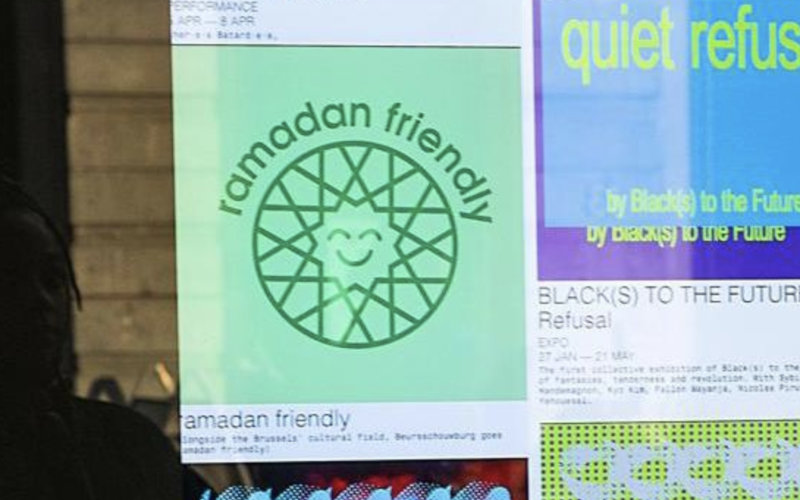Brussels Cultural Centers Face Backlash Over Ramadan Accommodation Stickers

The "Ramadan-friendly" stickers placed in about twenty cultural centers in Brussels during this Ramadan fasting period are poorly perceived by the city’s Muslim community.
These "Ramadan-friendly" labels aim to make the performances of the Brussels cultural houses such as the KVS, the Kaaitheater and the Beursschouwburg more accessible to Muslims during the Ramadan fasting period. With these stickers, those concerned can leave the room to eat and drink during the performances, or withdraw to a room set up to rest or pray. They are also alerted if there are scenes of nudity or verbal and physical violence, it is indicated.
But the stickers are the subject of many criticisms. In a letter addressed to the Brussels cultural houses, the Flemish Minister-President and Minister of Culture, Jan Jambon, denounced "a religious interference in cultural and artistic practice" which seems "very problematic" to him. For Michael De Cock, artistic director of the KVS, these labels pose no problem. "We have been using labels for a long time to warn spectators about sensitive content... The KVS is an inclusive theater in the city and ensures that everyone, including Muslims, is welcome," he explains.
The Muslim community does not appreciate the initiative either. "No Muslim has asked for this," declares Zeynep Balci, spokesperson for Brussels Minister-President Rudi Vervoort (PS), adding that the "fight against Islamophobic behaviors" must be permanent. She does not object to alerts to the public about sensitive or violent content. "These are essential elements for well-being," she assures, but "the fact that Muslims need content warnings for a theatrical performance is considered offensive and discriminatory," Balci points out.
For her, such an initiative "perpetuates the idea that Muslims are somehow different and need to be treated differently from other groups. This creates an artificial distinction that can be detrimental to social cohesion," laments Balci, who invites theater and film producers to work more with community groups to ensure that their productions respect the sensitivities of all communities.
Related Articles
-

Notorious Speed Demon ’Adil.gofast’ Released: Moroccan Influencer Faces 17-Year Driving Ban After 250 km/h Stunts
21 August 2025
-

Belgium Tightens Family Reunification Rules, Targets Migrant Influx
19 August 2025
-

Drug Kingpin Orchestrates Empire from Prison Cell: Assassination Plot Unravels in Brussels
16 August 2025
-

Brussels Drug Violence Escalates: Mayor Calls for Federal Task Force as Shootings Surge
14 August 2025
-

Disabled Teen Faces Expulsion: Family Fights to Stay in Brussels Amid Center Controversy
14 August 2025